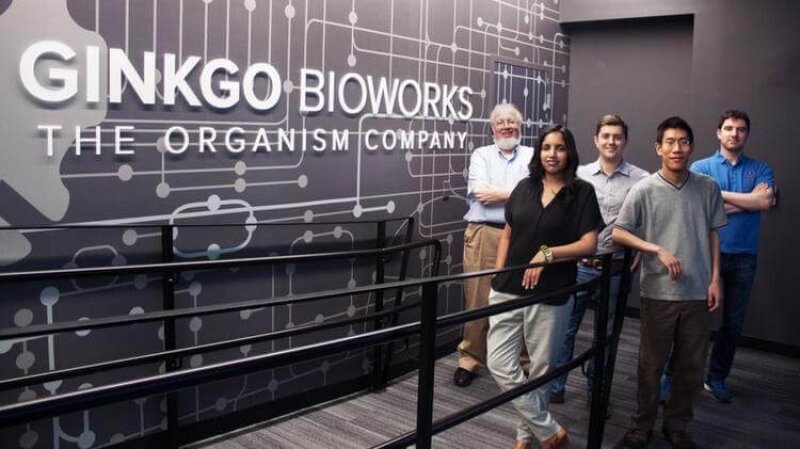Over the last several years, Ginkgo [Bioworks] has developed an automated process for combining genetic parts that has made it the largest designer of printed DNA in the world. That breakthrough has positioned the start-up to change the face of a variety of industries and helped to earn it the No. 21 spot on the 2018 CNBC Disruptor 50 list.
Last October, Ginkgo entered into a $100 million partnership with the global health-care and agriculture giant Bayer to engineer microbes capable of producing fertilizer for crops, like corn, wheat and rice.
…
Essentially, synthetic biology involves reconfiguring the genome of an organism to get it to do something entirely new. [CEO Jason] Kelly likens it to computer programming, only with genetic sequences. So think of DNA as computer code, and then imagine you can design sequences of DNA on the computer, physically print out those sequences, and insert them into microorganisms such as yeast and bacteria so they make products like rose-scented oil for perfume or sweeteners for beverages.
“We’re learning how to rewrite the code of life,” said Frances Arnold, a professor of chemical engineering, bioengineering, and biochemistry at the California Institute of Technology. “We’re seeing a move toward making things that either chemistry cannot make or can’t make efficiently but biology does.”
Read full, original post: Why Bill Gates is betting on a start-up that prints synthetic DNA































